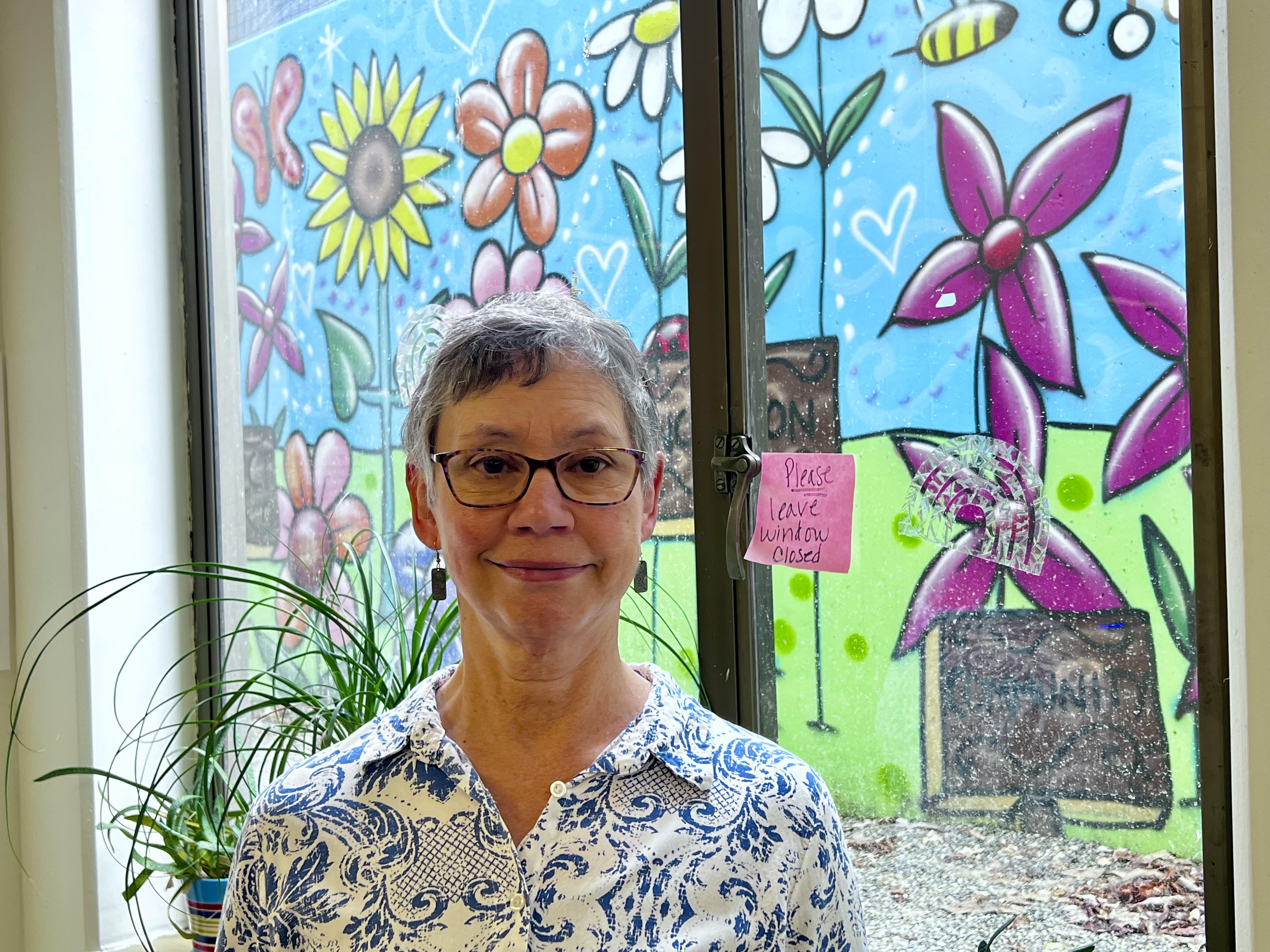Being available to sit and listen to those seeking a safe place to regroup is a big part of what Catherine Tardif-Douglin does at Elizabeth Gregory Home (EGH). This drop-in day center in Seattle’s University District serves women who are primarily unhoused. It offers a cozy environment where they can rest, have a hot meal, shower, do their laundry, and get advice on social services and housing. Recently, another service has been added to its roster: Mental health counseling with Catherine.
“One of the most important things we as human beings need is to be seen and heard by other people. And I think that’s one of the hardest things about being homeless. Often, people don’t want to look at you. It makes you invisible,” says Catherine, who says she does a lot of listening in her work.
Catherine has decades of experience as a clinical social worker and psychotherapist. She and her husband also worked internationally in rural development and lived with their family in a variety of countries including Rwanda and the Philippines. Earlier in life, she served in the Peace Corp in Zaire – now the Democratic Republic of Congo. All this experience comes into play as she serves in her role at EGH.
“We were introduced to Catherine last spring through Companis and felt so fortunate to meet someone with her particular skill set,” says Michelle Wick, EGH’s Program Manager. “Catherine’s initial role was to provide case management services, particularly around housing. During the time we’ve known her, we’ve also had the opportunity to benefit from her expertise around identifying and advising on mental health conditions when one of our guests has been in crisis in the day center.”
Catherine is the tenth Companis Worker placement at EGH since 2011. And what began as a volunteer role for her through Companis is now a paid staff position.
“When we received the funding that enabled us to hire a mental health provider in the day center, we immediately thought of Catherine,” says Michelle. “We were so pleased with the way she had been providing services that we felt confident she could provide a safe, therapeutic experience for our guests.”
Catherine says she’s happy to be there on Thursdays to provide confidential office hours, as well as making herself available for more informal chats throughout the facility. In addition to her work at EGH, Catherine maintains a small private practice as a psychotherapist. But now that she’s into her ‘60s, she felt the need to re-evaluate how she uses her time. “So I went to YouTube, of course,” she says with a laugh. “I watched a lot of TED talks, many of which asked the question: What’s your purpose in life?”
One of Catherine’s favorite videos is “How to know your purpose in life in 5 minutes,” a TEDx talk by film producer Adam Leipzig. In his presentation, Leipzig lists out five questions to ask yourself:
- Who are you?
- What do you do?
- Who do you do it for?
- What do they get out of it?
- How have their lives changed as a result?
One of the most interesting aspects of this Leipzig exercise is that only two of the five questions are about yourself. The other three are outward facing, focused on the people impacted by your actions.
Catherine’s answer to those questions, she says, ended up being two-fold: Reduce human misery and make people laugh. “I have this funny combination of laughing, especially at myself, and the desire to help people with my knowledge and skills.”
In her search for her next chapter as she moved into semi-retirement, a friend told her about Companis. “Jennifer Wing (Companis’ Associate ED – Director of Programs) helped me a lot,” she says, “I told her what my interests and curiosities are and my desire to be helpful, and she came up with a few options to explore.”
Catherine says she found the whole experience very efficient. “I liked how she limited my choices at the beginning. I think that’s an important strategy so you don’t overwhelm people. If you gave people 24 choices, they’d just freeze up!”
Losing Catherine as a Companis Worker now that she’s been hired at Elizabeth Gregory Home to provide mental health services is worth celebrating, says Jennifer Wing. “One of Companis’ superpowers is building capacity in organizations such as EGH. Companis Workers like Catherine give nonprofits a chance to see the impact they can make if these roles become more permanent.” Jennifer says Companis is glad to have played a small part in making this happen. “Catherine’s compassion and her desire to help people is adding value to a very special place. We’re so happy for everyone.”

